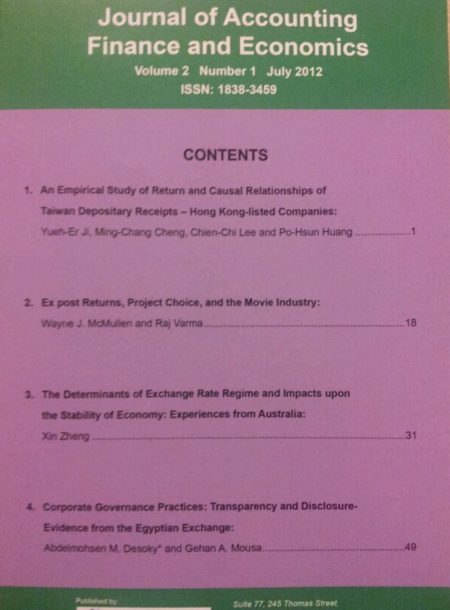Journal of Accounting, Finance and Economics
Vol. 8. No. 1. March 2018 Issue, March 2018, Pages: 58 – 75
Questioning the Effectiveness of Trade Openness in Facilitating Renewable Energy Transition: A Panel Data Analysis
Muntasir Murshed
The aim of this paper is to bridge the gap in the literature by empirically shedding light on the impacts of trade openness on facilitation of renewable energy transition in 38 selected countries across South Asia, Southeast Asia, Sub Saharan Africa, Latin America and Caribbean Islands. Annual data in, panel framework, stemming from 2000 to 2014 is incorporated in this paper and the Three-Stage Least Squares (3SLS) panel data estimation methodology is applied. In addition, Granger causality tests, and its pre-requisites are also considered to understand the long run causal associations as well. In light of the estimated results, it is found that trade openness, in general, does not contribute to renewable energy within the economy but it does enhance the energy use efficiency. Moreover, the results in this paper support the fact that inflow of FDI is conducive to the attainment of most of the energy sustainability targets enlisted under the United Nations 2030 Sustainable Development Agenda. The paper also finds evidence suggesting a paradoxical effect of remittances with regard to the overall renewable energy transition. According to the results, the inflow of remittance increases the consumption of renewable energy but it simultaneously reduces its share of the total energy consumption as well. Thus, this paper can be a cornerstone in designing crucial public policies aimed at facilitation of renewable energy use in quest of attainment of energy sustainability across the globe.

